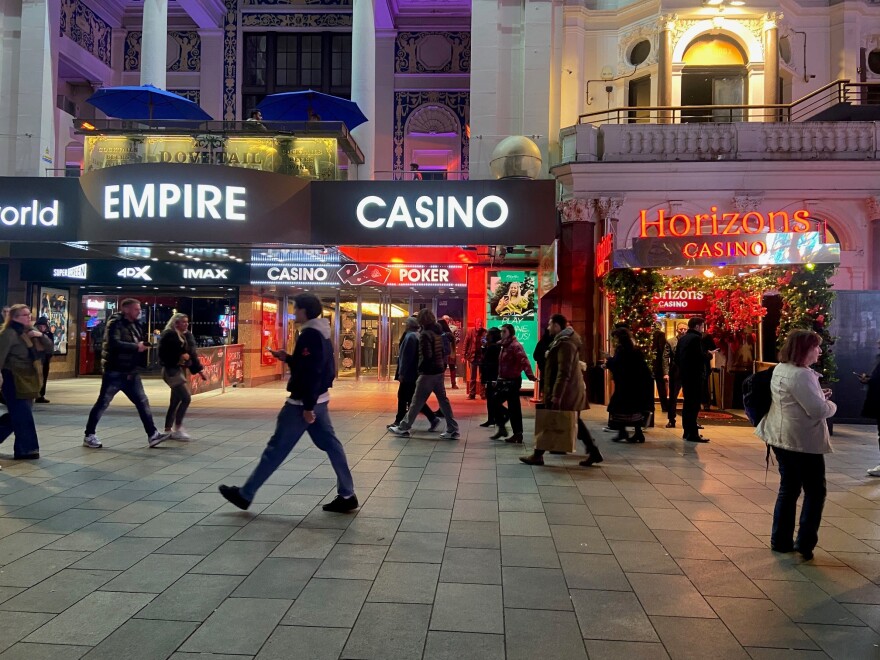
Massachusetts opened its first casino in 2015, along with a promise, by government leaders, to offer measures that help prevent gambling disorders. They pulled some ideas from other countries, but absent any federal guidelines, there has also been a lot of trial and error.
A decade on, the gambling landscape has dramatically changed. Mobile sports betting is legal in Massachusetts and 38 other states, while online casino games have only begun to take hold in the country. Now, public health leaders say it’s critical to consider new rules to help address gambling addiction before it’s too late to change course.
In this three-part series, NEPM's Karen Brown looks at what can be learned from two countries with very different models of gambling regulation: Norway and the United Kingdom. We’ll also look at efforts inside the United States to address the new gambling reality through a public health lens.
This project was supported by a grant from the Association of Health Care Journalists, with funding from The Commonwealth Fund. It was edited by Dusty Christensen, with help from Elizabeth Román.
Part 1: “How much can you afford to lose?” Gambling in Norway is tightly controlled. Could that work here?
Part 2: “When the fun stops, stop.” Addiction experts consider the rise of gambling in the U.K. a test case
Part 3: "It blows up in their face." Can a public health model lead the future of gambling in MA and U.S.?
Sidebar: Betting on the horses: a Norwegian case study
Reporter Debrief: Interview: Reporting beyond U.S. borders to understand the risks of gambling
-
An inside look at NEPM's new series, "High Stakes: Gambling Addiction, Beyond Borders." Reporter Karen Brown traveled to Norway and the United Kingdom to learn how other countries are balancing the excessive spread of legal betting with the risk of gambling disorders — and looked at similar efforts within the United States.
-
As sports betting expands across the U.S., states are on their own to make the rules. A growing movement of U.S. health leaders and legislators want to strengthen and standardize the way gambling is regulated. But they are facing opposition from the betting industry.
-
In 2005, the U.K. passed a law that liberalized the gambling industry, which had previously been merely tolerated. Public health leaders across the Atlantic say the U.S. should take note of the challenges the U.K. has faced since gambling spread to almost every city.
-
When it comes to gambling, Norway is one of the most regulated countries in the world. What can Massachusetts and the U.S. learn from its public health approach to betting addiction?
-
Norway's highly controlled approach to gambling includes reaching out to players who appear headed for trouble. At Norse Rikstoto, the government-run company that oversees horse racing, staff make personal calls to people who show an uptick in time or money spent on betting.






